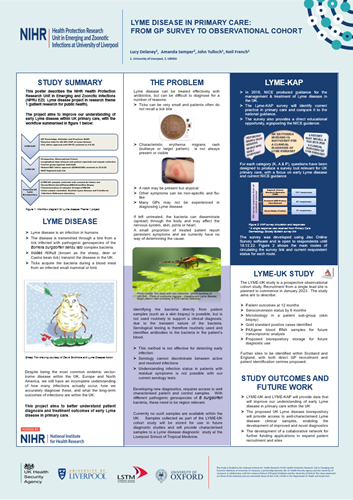Theme 1: Patient Research for Public Health
This theme will strengthen the ability of the UKHSA and NHS clinicians to prepare for and respond to national and global emerging infectious disease threats, in line with the UKHSA infectious diseases strategy framework 2020-25. This will include leveraging national infection and HCID networks and international expert consortia to address knowledge gaps, and the provision of clinical expertise and samples to the other Research Themes.
Project 1.1: Comprehensive characteristics of HCIDs in the UK
The world-leading research capabilities of the UK mean that intensive investigation of HCID cases can provide profound insights into illness, infectiousness and recovery that can inform prevention, care and the development of diagnostics, treatments and vaccines.
Through coordination with international partners and in partnership with Cochrane, we will also undertake and maintain systematic reviews of therapeutics for HCIDs (MERS, CCHF, monkeypox) as a key resource/evidence for clinicians and researchers. As a result of the COVID-19 pandemic, HPRU clinical researchers within Theme 1 have contributed significantly to improve understanding of natural history, pathogenesis, diagnostics and therapeutics at a national and international level.
Project 1.2: Arthropod-borne & CNS infections study

Dr Lance Turtle
Theme Co-Lead
University of Liverpool

Dr Jenny Warner
Senior Clinical Fellow
UK Health Security Agency

Dr Lynsey Goodwin
Clinical Research Fellow
University of Liverpool
Arthropod-borne virus (Arbovirus) infections are an increasing threat to Europe. Increasing global travel introduces vectors and viruses into new areas. The Zika virus outbreak in the Americas researched by the HPRU highlighted a need to strengthen preparedness for (re-) emerging arbovirus infections. Many emerging and imported infections present with neurological disease; such patients can sometimes act us “human sentinels” of new threats, exemplified by West Nile virus emergence in the USA, or enterovirus D68 disease in the UK.
This project will build on the European PREPARE arbovirus study, which has enrolled over 700 patients, and our track record in studying neurological infections in the UK and internationally. Working with Theme 4 we will describe the burden of disease of imported and locally-acquired arbovirus infections in the UK. Through prospective patient recruitment at sentinel sites, we will also recruit patients with central nervous system infection, focusing on returning travellers, patients in areas of potential risk.
Project 1.3: Lyme Disease Study

Prof Neil French
Theme Co-Lead
University of Liverpool

Dr Lucy Delaney
Clinical Research Fellow
University of Liverpool
The proposal is to create a cohort of individuals exposed to Borrelia infection and to follow their natural history under current treatment guidelines. Key to this action will be to establish a repository of clinical samples, containing a small number of “gold standard” incident infections as an anchor point for the interpretation of current serology, along with alternative approaches to be evaluated in the laboratory-based studies (Theme 4). The outcomes of this study will provide a clear description of expected outcomes based on current standard of care and inform us of necessary modifications to enhance early management.




